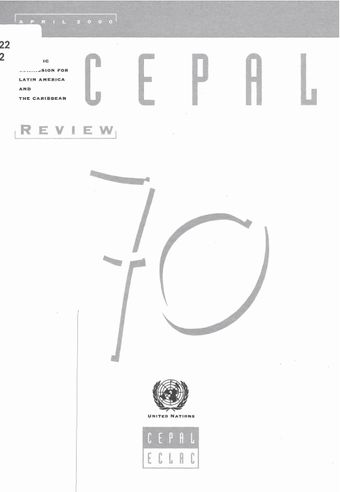-
Major macroeconomic disturbances, expectations and policy responses
- Source: CEPAL Review, Volume 2000, Issue 70, May 2000, p. 13 - 29
- Spanish
-
- 31 May 2000
Abstract
The episodes of great financial volatility and wide fluctuations in the level of activity of a number of economies have heightened the debate on how major macroeconomic fluctuations are generated and spread. Although it is acknowledged that much can be learned from the study of specific cases, in the literature decisions are often presented as though the agents adopting them were fully aware of all the relevant probability distributions. It is desirable, however, that in analysing these phenomena it should be recognized that both the economic agents and policy-makers are acting in variable contexts, with perceptions and expectations that change according to the inferences that each one draws from the evolution of the surrounding environment. In these conditions, the interpretation of fundamental variables such as the fiscal deficit or the current account balance is necessarily conditioned by conjectures about their future evolution: it cannot be maintained, then, that the state of the “fundamentals” is directly observable. The changing perceptions of the agents can thus result in big fluctuations in expenditure and credit conditions. This article addresses file problems of expectations which can give rise to failures in the coordination of intertemporal plans and consideres policies which could prevent or reduce such upsets; analyses, with regard to fiscal matters, the evaluation by the public sector of its budgetary constraints over time and the possible application of counter-cyclical measures; reviews the alternatives open in terms of the choice of exchange-rate systems in economies with different characteristics (especially the greater or lesser use of foreign currencies as denominators in contracts) and the design of financial policies; briefly refers to the international transmission of macroeconomic impulses, and finally offers some conclusions.





